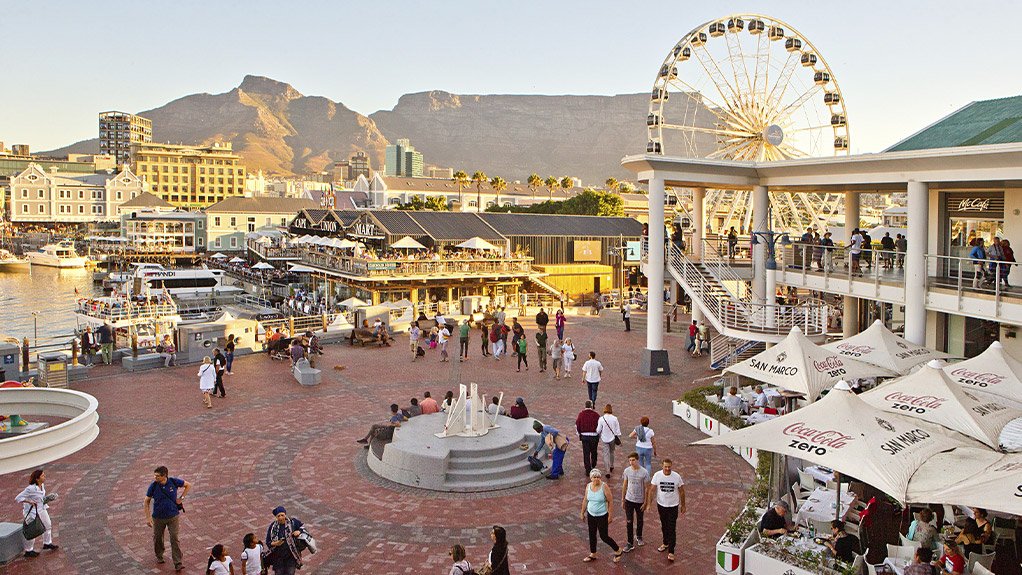The Department of Tourism has launched the R1.2-billion Tourism Equity Fund (TEF), aimed at driving transformation in the tourism sector.
The fund has been established in partnership with the Small Enterprise Finance Agency (Sefa) as a new financial support mechanism to stimulate investment and transformation in the tourism sector.
Advertisement
The fund will receive R540-million in funding from the department, as well as R120-million from Sefa, with the balance to be provided by commercial banks participating in the fund.
The South African Economic Reconstruction and Recovery Plan identifies the tourism sector as one of the key priority areas to revive the economy.
Advertisement
The tourism sector was one of the sectors hardest hit by the Covid-19 pandemic and lockdown regulations, and much remains to be done to stimulate new investment and fully exploit the potential of the sector, Tourism Minister Mmamoloko Kubayi-Ngubane said in an address at the launch of the fund on January 26.
President Cyril Ramaphosa added that the fund was aimed at creating an inclusive and growing tourism sector by supporting entrepreneurship and investment on the supply side of the tourism sector.
The fund will offer a combination of debt finance and grant funding for large capital investment projects in the tourism sector.
Kubayi-Ngubane pointed out that the fund would seek to fund commercially viable and sustainable majority black-owned tourism enterprises and facilitate the participation of targeted groups such as women and youth.
The TEF will focus on the following subsectors: accommodation, including hotels and resorts; hospitality and related services, including conference venues; travel and related services, including tour operators; and any other tourism-related products.
The financial support will be provided to acquire controlling equity in entities in the tourism sector and funding of assets of entities in the sector for the explicit purpose of setting up a new entity operating in the sector, as well as asset finance and working capital that will be required to acquire an entity for expansion or operational purposes.
A grant capital injection will be up to a maximum of R20-million, as determined by the fund scorecard, while the Sefa loan will involve funding up to a maximum of R15-million per enterprise.
The term of the funding will be determined by the business cash flows up to a maximum of 120 months per enterprise, with a maximum moratorium of 12 months.
The fund will also facilitate non-financial support in the form of mentorship, market access and investment monitoring.
Ramaphosa said tourism accounts for 2.9% of South Africa’s gross domestic product and 8.6% indirectly, but acknowledged that these figures could be much higher. He added that it is one of the economic segments that can play a pivotal role in transforming the economy and contributing to changing patterns of ownership, management and control.
He noted that the TEF would facilitate the participation of black entrants, as well as businesses owned by women and persons with disabilities, into the sector.
“The TEF is informed by the recognition that the capital-intensive nature of the industry prevents many black-owned tourism enterprises from growing and developing.
“By providing access to finance for black-owned commercially viable tourism projects, the TEF intends to address this challenge.”
As a combination of grant funding, concessionary loans and debt finance, the fund will cater to the specific needs of black-owned businesses to acquire equity, invest in new developments or expand existing developments.
A vital element of the operation of the TEF is the involvement of commercial banks, which will ensure that participants are able to access further loan financing.
This will significantly increase the impact and reach of this initiative – and increase the level of private investment in the industry.
The partnership between government, public entities and commercial banks is a great example of the kind of collaboration that is required as we forge a path towards a sustainable economic recovery, the President stated.
According to the International Finance Corporation, tourism generates about 740 000 direct jobs and more than 1.5-million indirectly, in South Africa. Small businesses make up about 80% of the travel and tourism industry, but many of them are on the brink.
It is estimated that South Africa lost about R68-billion of tourism revenue amid the Covid-19 outbreak last year.
A South Africa Tourism Survey, cited by news agency IOL last month, stated that 58% of tourism and hospitality businesses were unable to service their debts, and 61% were unable to cover fixed costs in October last year.
This while the Western Cape revealed that almost all of its top attractions reflected a more than 60% drop in visitors over the peak tourism season.







